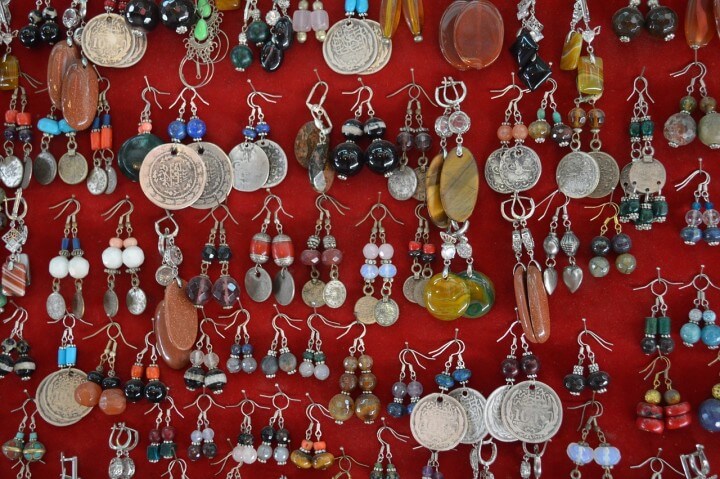 No one will believe that you were able to make these beautiful earrings so easily.
No one will believe that you were able to make these beautiful earrings so easily.
What you will need:
- Wire
- Beads
- Jig
- Flat nose or chain nose pliers
- Round nose pliers
- An anvil and a mallet
Instructions for the project:
It is recommended that the wire should be 20 or 21-gauge for the ear wire and chandelier frames and 24-gauge to attach the dangles if wrapped loops are used. If the dangles are going to be attached by simple eye loops, thicker wire such as 20 or 22-gauge is then used. The beads that you will use when making chandelier earrings actually depend on the size of the chandelier frame. Keep in mind that 20-gauge wire can carry a 4mm bead. Other sizes that are commonly used are 3mm and 6mm.
Be sure and stretch your creativity as beads can also range from crystals to glass pearls. A helpful tool to use is a jig. Jigs are usually a clear matrix of holes that has pins to insert into it. This is used to mark off the pattern for the earrings so that the wire can be bent to match the pattern.
The first step you will need to do, is to select the beads and set up the jig to create the chandelier frame, such as a diamond or whatever design has been decided upon. Set the beads that have been selected around the design so the space they take up can be clearly determined. Begin wrapping wire around the pins of the jig from the top and work around the entire design, ending by wrapping around the top once again. Be sure to pull the wire as it is wrapped and push it down toward the pins between the loops, keeping consistent tension on the wire for a nice, even shape. You can then cut the wire; remove the chandelier from the jig, then stretch the frame, using your fingertips, so the frame will fit into an ear wire loop. Keep in mind that an ear wire loop must be made large enough to accommodate the number of loops that the design calls for. Now you can attach the chandelier to the ear wire. You can now place the beads on the loops.
If you are using headpins form a loop above the bead using the round nose pliers, open the loop and slip onto the chandelier loop. Then use the flat nose pliers, close the loop, and repeat procedure to string the remaining beads. It is important to attach the top dangle to the ear wire finding, not to the chandelier frame. The dangle should hang from the ear wire between the two loops of the chandelier. Attach the dangle to the front loop of the chandelier; being aware that the dangle may not swing freely, especially if square wire is used. After attaching the dangle, you can then cut the wire and use a finger to mark the location of the bottom loop. Also it is important to realize that making the dangles for both earrings at the same time will help ensure that they are the same length. You will not repeat the process to make a second earring.

Leave a Reply